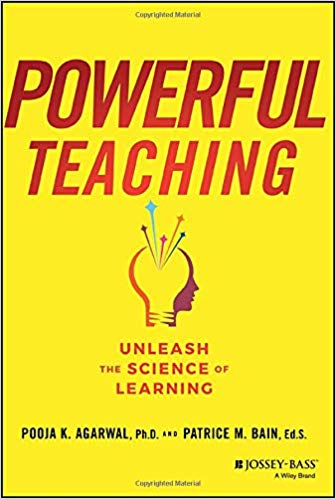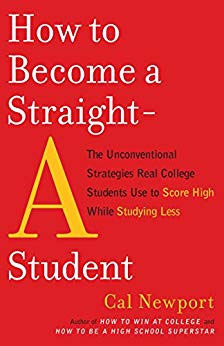
Cheery Friday Greetings to our Learning How to Learners!
Today, Barb’s giving the opening keynote for the Harvard-MIT-Dana Alliance Science of Learning Conference at 1:15 PM – 2:15 PM at The Westin Copley Place, Boston, MA; with an advanced workshop that builds on these ideas at 3:45 PM – 5:15 PM. If you’re near Boston, don’t miss it!
Book of the Week
Stalin: The Court of the Red Tsar, by Simon Sebag Montefiore. This extraordinarily well-researched volume reveals what can happen when a vicious, brutal, but charming-whenever-necessary killer climbs to power in a system that has nothing by way of checks and balances. Even Churchill—no fool when it came to Hitler’s intentions, was wowed by Stalin—a man who enjoyed the mental as well as physical torture of all who opposed him. Montefiore describes the strange family and public life of a man who led one of history’s greatest democides. It’s hard to convey just how difficult life was for anyone who thought independently, or even anyone who made a simple joke, in Stalin’s time—Montefiore does an outstanding job at this virtually indescribable task. An extraordinary book.
Tell Us about Your Experiences in Our Learning How to Learn Course
Barb’s friend, Dr. Eulho Jung from Boise State University, wants to investigate your experiences on Learning How to Learn, MOOC online course. You are invited to participate in the study—click here to enter the survey.
How the amount and spacing of retrieval practice affect the retention of mathematics knowledge
This fascinating recent paper by Lyle et al in Educational Psychology Review tackles the specifics of how often and how much retrieval practice is most helpful in math (a pre-calculus) class, as assessed in part by subsequent performance in the following calculus course. “We assessed retention of precalculus knowledge at two educationally relevant time points: the end of the precalculus course (within-semester) and the beginning of a calculus course 4 weeks later (across-semester). Within-semester retention benefited significantly from practicing more and from spacing out practice, although some evidence suggested that the effect of amount of practice was less robust than the effect of spacing. Across-semester retention benefited exclusively from increasing spacing. Given that retaining precalculus knowledge across semesters is crucial for success in higher-level mathematics, these findings support increasing spacing in real-world mathematics education.”
And Speaking of Retrieving—Here’s a Fine Article on Optimal Processes for Creating Flashcards
One of our favorite writers on learning, David Handel, MD, has written “How to Create and Practice Flashcards Like a Boss.” Even if you think you are an expert at flashcard use, you will learn new and useful ideas from this brilliant article. And be sure to check out IDoRecall, which we’ve begun using and like very much.
Study Shows the Brains of Girls and Boys are Similar, Producing Equal Math Ability
This paper, “Gender Similarities in the Brain during Mathematics Development,” in the journal npj Science of Learning, led by Jessica Cantlon at Carnegie Mellon University, is aptly summarized here: “Cantlon and her team conducted the first neuroimaging study to evaluate biological gender differences in math aptitude of young children.
“Her team used functional MRI to measure the brain activity in 104 young children (3- to 10-years-old; 55 girls) while watching an educational video covering early math topics, like counting and addition. The researchers compared scans from the boys and girls to evaluate brain similarity. In addition, the team examined brain maturity by comparing the children’s scans to those taken from a group of adults (63 adults; 25 women) who watched the same math videos.
“After numerous statistical comparisons, Cantlon and her team found no difference in the brain development of girls and boys. In addition, the researchers found no difference in how boys and girls processed math skills and were equally engaged while watching the educational videos. Finally, boys’ and girls’ brain maturity were statistically equivalent when compared to either men or women in the adult group.” [Hat tip: Rick]
On Second Thought, Maybe Male and Female Brains Really Aren’t So Similar…
Interestingly, the above study sticks assiduously to mathematics and makes no note of differences in girls’ and boys’ average verbal abilities—which can have a significant impact on a child’s ultimate interests and career preferences. This is a perfect example of the streetlight effect, the observational bias that occurs when people only search for something where it is easiest to look. The above study also ignores salient work such as this fine paper, “Sex differences in academic achievement are not related to political, economic, or social equality,” by Stoet and Geary, which observes “… when it comes to choices made by individual students, mean sex differences in mathematics or reading may not be as important as whether they are, as individuals, better at mathematics than verbal competencies, including reading, or vice versa.” (Girls, it appears, often have an early verbal advantage over boys.)
And this recent study, “Sex differences in brain correlates of STEM anxiety,” finds neural differences in male and female reactions to studying STEM. “We found sex differences in STEM-related and clinical anxiety, with longitudinal increases in science anxiety observed for both female and male students. Sex-specific relationships between STEM anxiety and brain connectivity emerged, with male students exhibiting distinct inter-network connectivity for STEM and clinical anxiety and female students demonstrating no significant within-sex correlations. Anxiety was negatively correlated with academic performance in sex-specific ways at both pre- and post-instruction. Moreover, math anxiety in male students mediated the relation between default mode-salience connectivity and course grade. Together, these results reveal complex sex differences in the neural mechanisms driving how anxiety is related to STEM learning.”
That’s all for this week. Have a happy week in Learning How to Learn!
Barb, Terry, and the entire Learning How to Learn team
- Get the course recommended text, A Mind for Numbers!
- And Learning How to Learn: How to Succeed in School Without Spending All Your Time Studying; A Guide for Kids and Teens. Great ideas for parents, too!
- Follow LHTL on Facebook | Join the private LHTL Hall of Fame group | Follow LHTL on Twitter

















